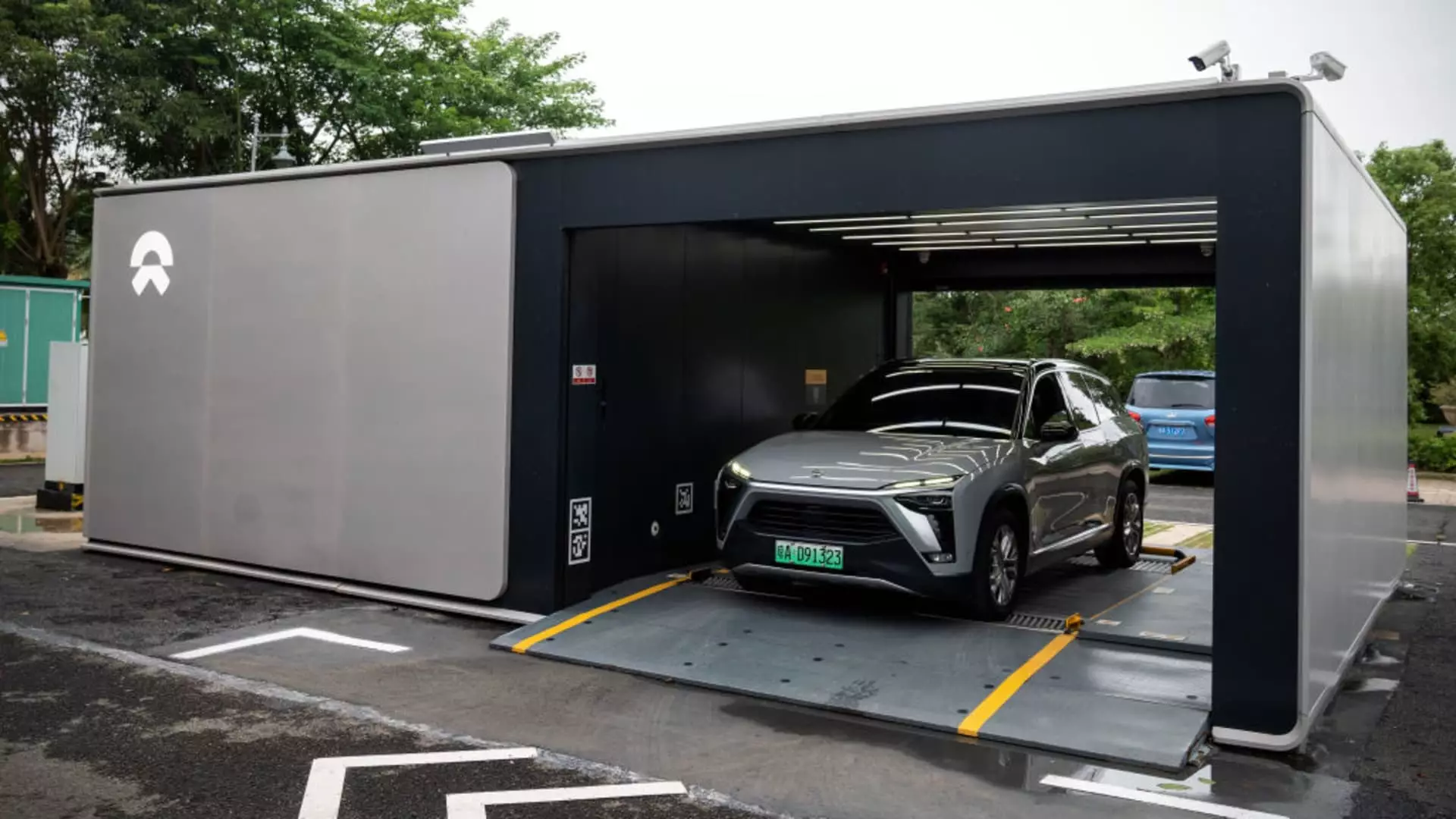Chinese electric car company Nio has been making significant strides in the EV ecosystem by expanding its battery swap partnerships in China. In an effort to alleviate consumers’ anxiety about driving range, Nio has partnered with at least four Chinese automakers such as Changan, Geely, Chery, and JAC. These partnerships are focused on developing battery swap standards and expanding the network in China. Nio has also announced agreements with two local battery companies to enhance the battery swap services offered to consumers.
Charging Stations vs. Battery Swapping
While charging stations are prevalent in the market, battery swapping offers a faster alternative as it only takes a few minutes to complete. Nio has completed 40 million battery swaps compared to nearly 37 million charges at its public stations, showcasing the efficiency and convenience of this technology. This innovative approach aims to not only serve Nio’s users but also to sell more cars by providing a seamless battery charging and swapping experience. The company’s senior vice president, Shen Fei, emphasized the importance of keeping up with advancements in battery technology through the implementation of swapping services.
Battery swapping has been met with mixed success in the industry, with companies like Tesla and Ample experimenting with this technology in the past. While the concept of swapping offers an attractive feature set, there are economic challenges to consider. Nio’s investment in battery swap stations is ahead of market demand, with CEO William Li acknowledging the need for a minimum number of orders to ensure station profitability. The long-term success of battery swapping will depend on factors such as battery inventory investment, partnerships, and market demand.
The rise of electric cars raises concerns about battery waste and the lifespan of batteries used in swap stations. Nio has partnered with battery giant Contemporary Amperex Technology to develop batteries with longer lifespans, particularly for those used in swap stations. By leveraging battery swap technology and big data, Nio aims to retain 80% of a battery’s capacity after 12 years of use. As the industry continues to evolve, collaboration between companies and investment in sustainable solutions will be crucial for the future of electric cars.
The Global Perspective
While Nio is leading the way in battery swapping technology in China and Europe, other major players like Tesla are also exploring similar initiatives. Tesla’s superchargers worldwide claim to restore two-thirds of a battery’s charge in just 15 minutes, providing a viable alternative to traditional charging stations. Collaborations between automakers in the realm of battery charging are becoming more common, with companies like Ford and General Motors partnering with Tesla to utilize their supercharging infrastructure.
The future of electric cars lies in the advancement of battery swapping technology. Nio’s efforts to expand its network of battery swap stations and develop sustainable battery solutions demonstrate the potential for widespread adoption of this innovative approach. While challenges exist in terms of economics and infrastructure, collaboration among industry players and a focus on sustainability will be essential in shaping the future of electric transportation.

